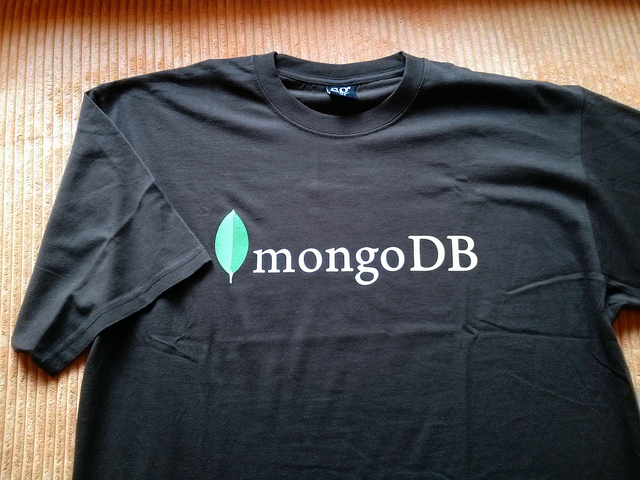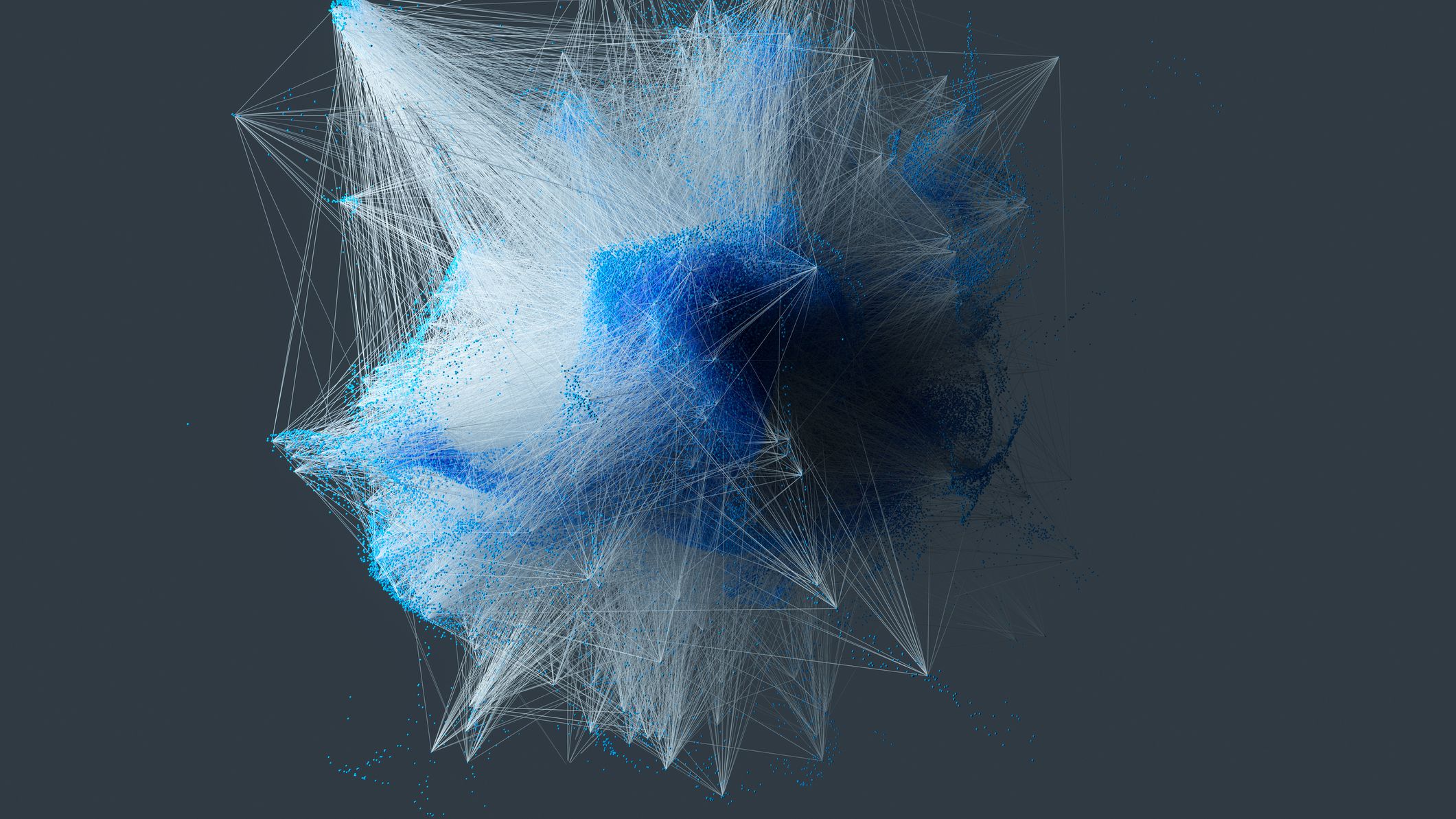MongoDB hails revitalised database as “new default”
Database giant outstrips Cassandra and Couchbase performance by as much as 13 times, finds study

MongoDB will become the "new default" database for enterprises now its performance matches its broad variety of features, claimed the company's president today.
The NoSQL database firm outperforms rivals by up to 13 times on scalability, according to research from independent benchmarking organisation United Software Associates.
Competitors Couchbase and Cassandra couldn't match MongoDB's ability to predictably scale up deployments where the data size exceeds the RAM size, where data is partitioned across multiple servers or where it is replicated for high availability.
Using Yahoo's Cloud Serving Benchmark standards, United Software tested two workloads - one an even mix of reads and updates, the other comprising 95 per cent reads and five per cent updates.
The 50/50 workload saw MongoDB offer 13 times the throughput power that Couchbase provides, and 1.8 times Cassandra's own capability.
In the second test, MongoDB's throughput outperformed Cassandra by 1.6 times, and Couchbase by six times.
The benchmarking company used the tests to examine durability, throughput, and a balance providing strong performance and strong durability, using the latest versions of each product - Couchbase 3.0.2, Cassandra 2.12 and MongoDB 3.0.1 with WiredTiger.
Get the ITPro daily newsletter
Sign up today and you will receive a free copy of our Future Focus 2025 report - the leading guidance on AI, cybersecurity and other IT challenges as per 700+ senior executives
Speaking at MongoDB World in New York, president Dev Ittycheria said the results signalled a turning point for his company.
"This is the moment when MongoDB transitioned from a compelling alternative to the new default," he said. "We will become the new default solution for ops, the new default solution for developers, the new default solution for business users and the new default solution for partners.
"MongoDB delivers the richest set of features, but now we also deliver the best performance."
The database giant, which also revealed its solution has now been downloaded 10 million times, has long been seen as providing a broad set of features, but customers say it has been underwhelming when it comes to scalability.
But Ittycheria attributed the database's bolstered performance to the acquisition of WiredTiger, the open source storage engine it bought in mid-December 2014, which it then integrated into MongoDB 3.0, released in February.
He said: "Version 3.0 was truly a leapfrog improvement in functionality and performance and a big reason for that improvement was the acquisition of WiredTiger."
One customer, US healthcare analytics provider Apervita, cited MongoDB's scalability as a compelling factor in choosing the database.
Michael Oltman, MD of technology at Apervita, said: "Seeing at where the roadmap had taken it, looking really at the scale - we have a big scaling problem to evaluate as much data as possible - it was a very quick decision for us."
And, he added, MongoDB is scalable enough he doesn't need another database for other workloads or dataset types.
"Our entire platform runs on MongoDB, everything from user information to analytical results, to the patient information, it's all on one database," he said.
United Software Associates CEO, Sam Bhat, said: "MongoDB proved to have the best and most predictable scalability, better than either of the niche NoSQL products.
"With these tests we can confidently say MongoDB is well suited for the widest range of applications, and is also at the forefront of databases in terms of performance and scalability."
However, Couchbase emailed IT Pro to outline another benchmarking test, in which Couchbase Server 3.0 outperformed MongoDB 3.0 with WiredTiger by 4.5 times.
Avalon Consulting, LLC - a Couchbase partner - carried out the benchmark test, basing its findings on separate tests featuring a mixed read/write workload, almost a terabyte of data, insufficient memory to cache all the data, and an increasing number of concurrent users.
Couchbase outperformed MongoDB by at least double in all of them, according to the study.
Another benchmark found Couchbase Server 3.0 sustained 1.1 million writes per second with very low latency on Google Cloud Platform, using just 50 nodes, while Cassandra required over 300 nodes.
Picture courtesy of David Martn :: Suki_ ::
This article was published on 1 June, 2015, and updated on 2 June, 2015, to include Couchbase's response.
-
 Bigger salaries, more burnout: Is the CISO role in crisis?
Bigger salaries, more burnout: Is the CISO role in crisis?In-depth CISOs are more stressed than ever before – but why is this and what can be done?
By Kate O'Flaherty Published
-
 Cheap cyber crime kits can be bought on the dark web for less than $25
Cheap cyber crime kits can be bought on the dark web for less than $25News Research from NordVPN shows phishing kits are now widely available on the dark web and via messaging apps like Telegram, and are often selling for less than $25.
By Emma Woollacott Published
-
 Accelerating revenue with IBM
Accelerating revenue with IBMwhitepaper Increase your impact and grow new revenue streams
By ITPro Published
-
 Magic Quadrant for Full Life Cycle API Management
Magic Quadrant for Full Life Cycle API ManagementWhitepaper Assessing vendors in the fast-evolving full life cycle API management market to help software engineering leaders pick the right one
By ITPro Published
-
 Four steps to better business decisions
Four steps to better business decisionsWhitepaper Determining where data can help your business
By ITPro Published
-
 Majority of CIOs concerned that cloud complexity exceeds human ability
Majority of CIOs concerned that cloud complexity exceeds human abilityNews Greater observability and rollout of automated systems are also needed to reduce IT team strain and burnout
By Rory Bathgate Published
-
 Datadog Database Monitoring extends to SQL Server and Azure database platforms
Datadog Database Monitoring extends to SQL Server and Azure database platformsNews The tool offers increased visibility into query-level metrics and detailed explanation plans
By Praharsha Anand Published
-
 Twitter reports largest ever period for data requests in new transparency report
Twitter reports largest ever period for data requests in new transparency reportNews The company pointed to the success of its moderation systems despite increasing reports, as governments increasingly targeted verified journalists and news sources
By Rory Bathgate Published
-
 Oracle and Microsoft announce Oracle Database Service for Azure
Oracle and Microsoft announce Oracle Database Service for AzureNews Azure users can now easily provision, access, and monitor enterprise-grade Oracle Database services in Oracle Cloud Infrastructure
By Daniel Todd Published
-
 Elastic expands cloud collaboration with AWS
Elastic expands cloud collaboration with AWSNews Partnership aims to ease migration to Elastic Cloud on AWS, as well as simplify onboarding and drive go-to-market initiatives
By Daniel Todd Published